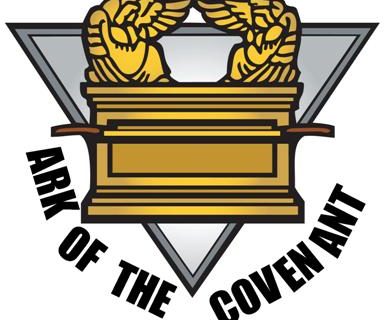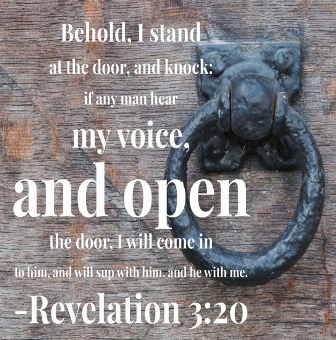For centuries archeologists and biblical investigators have searched for the location of the “Ark of the Covenant”. It has not been seen since Israel was taken into captivity by Babylon in 587 B.C. under the reign of king Nebuchadnezzar. (In case you are not aware of the Ark of the Covenant and its contents, the Lord instructed Moses to construct a wooden box and overlay it with gold. Rings of gold were attached to the side and golden staves were used to carry it. A mercy seat of pure gold was fashioned for the top of it, and two golden cherubims were affixed to each end of the mercy seat. Inside the ark were the tablets containing the Ten Commandments, a pot of manna, and Aaron’s rod that budded; only the Levitical tribe could move it. The Ark of the Covenant resided in the Holy of Holies – initially in the tabernacle and subsequently in the temple. Initially, only Moses was allowed to come into its presence when it resided in the Holy of Holies, for the Lord communed with him at the mercy seat. Later on, only the high priest was allowed to come into its presence when the annual sacrificial sin offerings were made for the nation of Israel. (Cf. Exodus 25:10-22; Exodus 34:27-28; Leviticus 16:2; 2 Chronicles 5:10; Hebrews 9:4).)
Scholars over the years have claimed that the Ark of the Covenant has been secured in places including, Mount Nebo in Israel, southern Africa, Ethiopia, Egypt, and several locations in Europe. Over the last couple years, excavations have also been carried out at the site of Kirjathjearim, which is a hill on the outskirts of Abu Ghosh, a village near Jerusalem. The ark had formerly been kept there for twenty years in the house of Abinadab during the reign of king David; being attended to by Abinadab’s son Eleazar.
And now you might ask, “What is so intriguing and fascinating concerning the whereabouts of the Ark of the Covenant?” Are people searching for it as would a treasure hunter seeking some monetary gain? Are people searching for it such that it could be “worshipped” – reverencing it as a god? (Consider how that worked out for the Israelites and the Philistines. (Cf. 1 Samuel 4:1-11; 1 Samuel 5:1 – 1 Samuel 6:18).) Are people searching for it with regards to its contents – seeking some mystical spiritual advantage by securing the contents? Are people curious as to what the Ark of the Covenant represents? Are people curious as to what is written on the tablets? If truth be told, all of the above questions are true to some extent. (If the Ark of the Covenant were to be found, caution should be used when touching it; consider Uzza. (Cf. Joshua 4:16; 1 Chronicles 13:1-14).)
Let’s focus on the question as to what the Ark of the Covenant and its contents represents. First, the Ark of the Covenant (also known as the Ark of the Testimony) represented the presence of God in the midst of the Israelites. But from a deeper perspective, the Ark of the Testimony represented God’s Covenant to the Israelites. God had promised Abraham that all nations would be blessed through his seed.
Genesis 12:3 states,
“And I will bless them that bless thee, and curse him that curseth thee: and in thee shall all families of the earth be blessed.”
God also promised Abraham that he would establish a nation through his seed; through Isaac, Jacob. Jacob’s family went into Egypt with about 75 family members, and after 430 years God instructed Moses to lead this group of Hebrews, now between 1.5-2 million, out of Egypt to establish a nation unto God. Upon the birth of this nation, God further reminded Moses of His covenant to Abraham with regards to providing this new nation with land. God also gave Moses laws as to how this nation was to operate and govern; how they were to worship the only true and living God, and how they were to treat one another. But what about those tablets; what about the words written thereon? Those words, referred to as the “Ten Commandments” were given to Moses and the Israelites as His written testimony – in that, if the Israelites would obey them, He would bless them; but if they disobeyed them, He would curse them. As time went on, the Israelites had a continual penchant towards disobeying the “Commandments”; thus, in time the Ark of the Covenant was no longer to be found. But what about the promise to Abraham that “all nations would be blessed”? [Because] no man could ever live perfectly according to the “Ten Commandments”, all men have been cursed from birth.
Romans 3:23 states,
“For all have sinned, and come short of the glory of God;”
But praise God that He sent His only begotten Son Jesus Christ, who did live a perfect life (never breaking one commandment), who died for our sin debt – and [because] of His resurrection offers us eternal life, and His eternal presence to all who will believe. Stop searching for the “Ark of the Covenant” and seek Jesus Christ as your Savior. He can be found.



